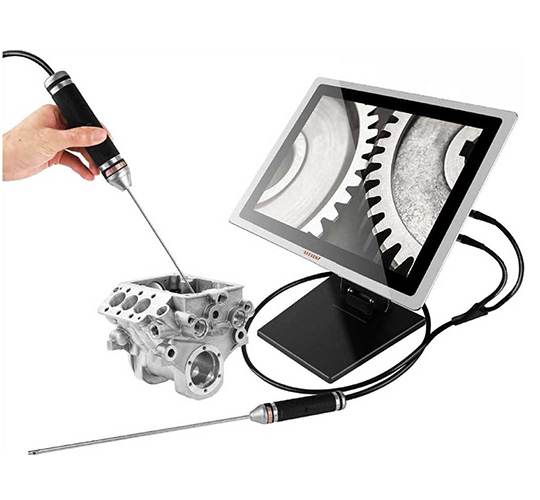The Functions and Prices of Industrial Endoscopes
Industrial endoscopes play a crucial role in various sectors, providing a versatile and non-destructive means of inspecting and assessing the internal conditions of machinery, equipment, and structures. These devices, equipped with advanced imaging technology, have become indispensable tools for maintenance, quality control, and troubleshooting in industries such as manufacturing, automotive, aerospace, and more.
Functions of Industrial Endoscopes:
- Remote Inspection: Industrial endoscopes facilitate remote visual inspections of hard-to-reach or inaccessible areas. With their flexible and slender probes, they can navigate through intricate spaces, allowing inspectors to examine internal components without disassembling machinery.
- Quality Control: In manufacturing processes, endoscopes aid in quality control by enabling inspectors to scrutinize the production line for defects, irregularities, or foreign objects. This contributes to maintaining high production standards and reducing the risk of faulty products.
- Equipment Maintenance: Regular maintenance is crucial for preventing unexpected breakdowns. Industrial endoscopes assist maintenance professionals in assessing the condition of internal components, identifying wear and tear, and planning timely repairs or replacements.
- Safety Inspections: Endoscopes are employed in safety inspections to assess the structural integrity of pipelines, tanks, and other critical infrastructure. By identifying potential issues early on, they help prevent accidents and ensure a safe working environment.
- Non-Destructive Testing: Unlike traditional inspection methods that may require dismantling, industrial endoscopes offer non-destructive testing capabilities. This not only saves time but also minimizes the disruption to ongoing operations.
Prices of Industrial Endoscopes:
The cost of industrial endoscopes varies based on several factors, including:
- Resolution and Image Quality: Higher resolution and superior image quality come at a higher cost. Industrial endoscopes with advanced camera technology and high-definition displays command a premium.
- Probe Length and Flexibility: The length and flexibility of the endoscope probe impact its price. Longer and more flexible probes, capable of reaching deeper and more complex areas, tend to be more expensive.
- Features and Accessories: Additional features such as articulation, zoom capabilities, and specialized accessories contribute to the overall cost. Endoscopes with advanced functionalities cater to specific inspection needs.
- Durability and Build Quality: Industrial endoscopes designed for rugged environments or harsh conditions often have a higher price tag due to their durable build and resistance to environmental factors.
- Brand Reputation: Established brands with a reputation for quality and reliability may offer higher-priced models, reflecting the perceived value and trust associated with their products.
In conclusion, the functions and prices of industrial endoscopes make them indispensable tools for a wide range of industries. Investing in a quality industrial endoscope can lead to improved efficiency, reduced downtime, and enhanced safety in industrial operations.



Dismiss me from it.